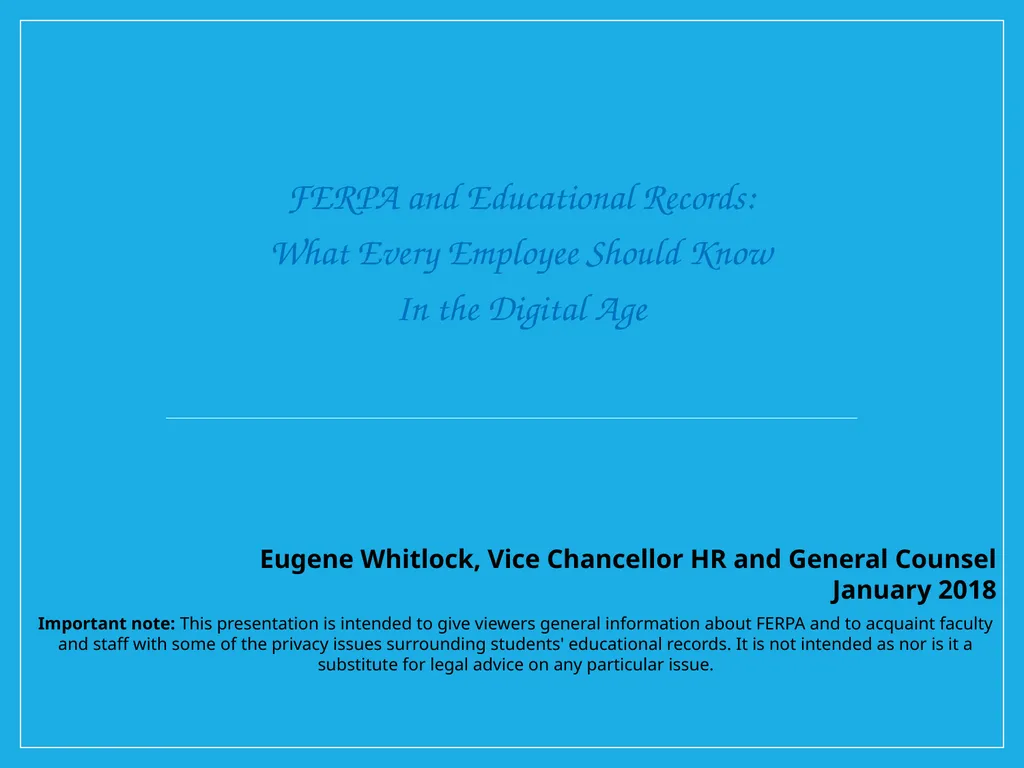
Author : conchita-marotz | Published Date : 2025-06-27
Description: FERPA and Educational Records: What Every Employee Should Know In the Digital Age Eugene Whitlock, Vice Chancellor HR and General Counsel January 2018 Important note: This presentation is intended to give viewers general information aboutDownload Presentation The PPT/PDF document "" is the property of its rightful owner. Permission is granted to download and print the materials on this website for personal, non-commercial use only, and to display it on your personal computer provided you do not modify the materials and that you retain all copyright notices contained in the materials. By downloading content from our website, you accept the terms of this agreement.
Here is the link to download the presentation.
"FERPA and Educational Records: What Every Employee"The content belongs to its owner. You may download and print it for personal use, without modification, and keep all copyright notices. By downloading, you agree to these terms.













